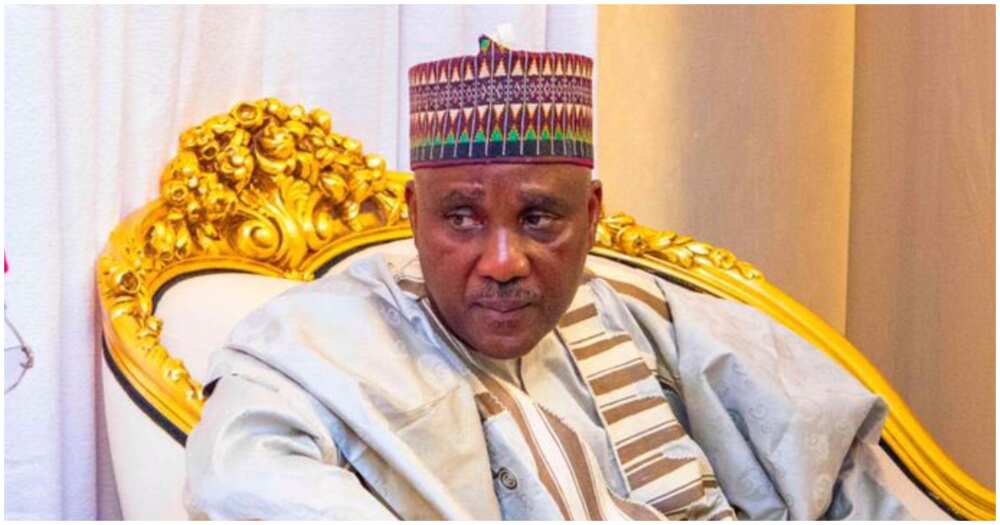The Speaker of the House of Representatives of Nigeria, Tajudeen Abbas, has advocated for the establishment of a robust parliamentary diplomacy framework between Nigeria and Cuba. This framework, he emphasized, should prioritize facilitating medical exchanges, joint research initiatives, and strategic investments in key sectors of both economies. Speaker Abbas stressed that the parliamentary collaboration should go beyond mere dialogue and produce tangible outcomes, such as Memoranda of Understanding (MOUs), ratified treaties, and concrete, funded programs that directly benefit both nations. He expressed this vision while receiving a Cuban parliamentary delegation led by Fernando Llort, a member of the Cuban National Assembly and President of the Cuban Institute of Friendship with the People. The Speaker, represented by Deputy Speaker Benjamin Kalu, lauded the existing diplomatic relationship between the two countries and called for its further strengthening.
Speaker Abbas identified several strategic areas for collaboration, including health and parliamentary diplomacy, trade and cultural exchanges, biotechnology, and pharmaceuticals. He underscored the importance of implementing robust policies in these areas to foster a strong and mutually beneficial partnership. The Speaker stressed that Nigeria’s foreign policy prioritizes partnerships that promote peace, development, and shared prosperity, particularly within the Global South. He highlighted the commitment of the 10th Assembly to advancing these goals through legislation that enables economic cooperation, cultural exchange, and international dialogue. He recognized Cuba’s historical role in parliamentary solidarity, from decolonization struggles to advocating for global equity, emphasizing the strategic and moral imperative of formalizing collaboration between the two legislatures.
The Speaker lamented the minimal level of bilateral trade between the two countries, citing UN reports indicating that Nigeria’s imports from Cuba were a mere $2,380 in 2024. He contrasted this with the deep cultural ties that exist between the two nations, particularly in music, sports, and literature, and called for leveraging this affinity to create opportunities for artisans, agri-entrepreneurs, and those in the creative industries. He envisioned scholarship programs in Cuba combined with Nigerian internships and reciprocal placements, fostering professionals adept in international cooperation. He further highlighted Cuba’s impressive record in global health, with over 1,200 doctors deployed in 21 “Henry Reeve” brigades worldwide, and tens of thousands more serving globally. He proposed joint training, exchange of health expertise, and co-development of treatments as pathways to strengthening Nigeria’s health systems.
Recognizing Nigeria’s focus on affordable medicines and vaccine production capacity, Speaker Abbas pointed to Cuba’s biotechnology advancements, especially the Abdala COVID-19 vaccine, as a model for potential collaboration. He advocated for partnerships in research, technology transfer, and pilot manufacturing to boost vaccine production in Nigeria, enhance public health, create jobs, and advance Africa’s self-sufficiency in healthcare. He emphasized that the envisioned relationship is not a one-way street but a balanced exchange, where Cuba’s achievements in health, biotechnology, and education complement Nigeria’s vast market, rich resources, dynamic creative industries, and continental leadership. He painted a picture of reciprocal benefits, with Cuba contributing its proven knowledge and Nigeria offering scale and opportunity, leading to the upliftment of both peoples and the wider Global South.
Echoing the Speaker’s sentiments, both the Cuban Ambassador to Nigeria, Miriam Palmer, and the visiting parliamentarian, Fernando Llort, praised the existing relationship between the two nations and affirmed their commitment to working on issues of mutual interest. Llort extended an invitation to the Deputy Speaker to visit Cuba for further discussions on parliamentary diplomacy and other areas of shared concern. The diplomatic ties between Nigeria and Cuba, established in 1974, have historically focused on education, culture, and health. Cuba has served as a training ground for Nigerian medical students, offering scholarships and technical training. Cuban doctors have also played a significant role in healthcare across Africa, including Nigeria, through health cooperation agreements dating back to the late 20th century.
However, despite these long-standing ties, trade and investment between the two countries remain underdeveloped. The negligible value of Nigeria’s imports from Cuba in recent years, as indicated by UN data, underscores the untapped potential for economic cooperation. The call for enhanced parliamentary diplomacy aims to bridge this gap and translate the existing goodwill into concrete partnerships that benefit both nations economically while further strengthening their already established ties in health, education, and culture. The focus on medical exchanges, joint research, and investment in critical sectors signals a shift towards a more comprehensive and mutually beneficial relationship.














